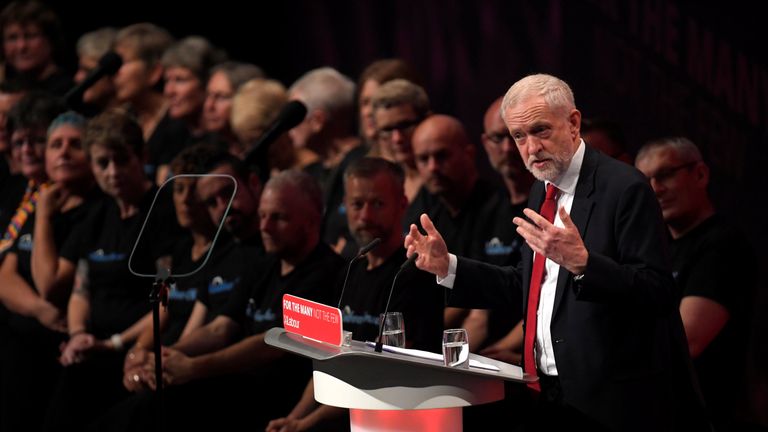Sky Views: The populist misjudges the people

Thursday 15 March 2018 04:25, UK
Beth Rigby, Senior Political Correspondent
Novichok - a military grade chemical weapon with the power to kill thousands of people and extremely difficult to treat. Deployed in a local pizzeria in Salisbury where families like mine were gathered for Sunday lunch.
It was the first use of a nerve agent on the continent since the end of the Second World War.
It has left a former Russian spy Sergei Skripal and his daughter in a critical condition, while a policeman who came to their aid remains in hospital too.
What if it had been deployed near a children's playground or on the London Underground? The consequences don't bear contemplation.
Theresa May's ultimatum to Russia ignored, she delivered her verdict to the House of Commons on Wednesday: sanctions, expulsions and the suspension of high level contact between the Russian and UK states.
But if the Prime Minister had hoped the Labour leader would stand with her in a moment of "national consensus" she was to be disappointed.
Jeremy Corbyn refused to explicitly condemn Russia for the attack as he questioned the Prime Minister on the Russian state's culpability.
In the chamber, Mr Corbyn's own MPs disavowed their leader as Conservative MPs shouted "shame" across the floor.
The Salisbury attack has re-opened the divisions between the Labour leader's office and the parliamentary party when it comes to foreign policy.
His handling of the Skripal case crystallises the moral dilemma many of his MPs face: on national security matters they have little confidence in his leadership.
For their part, Mr Corbyn's team are unrepentant and believe he must not be drawn into the hysteria surrounding the Salisbury attack. Mr Corbyn, they argue, has made the right judgements on foreign policy in the past - be that on Iraq or Libya.
But in equivocating over an nerve agent attack on British soil he may well have misjudged the mood of the British people. Will the Russian crisis be the moment where he loses his populist touch?
For ordinary British families, the thought of a chemical weapon being unleashed in a Zizzi restaurant in a regional city is frightening: a warlike act carried out in the most ordinary - and familiar - of settings.
Conservatives have long believed that security and foreign policy is Mr Corbyn's Achilles heel.
This is how that playbook goes: He is a pacifist, he won't act on threats, he prevaricated on military intervention. During the snap election, his opponents tried to discredit him over his links to the IRA in Ireland or Hamas in Palestine.
They've attacked him on his support for the Venezuelan political regime and latterly, his meetings with Czech spies in the Cold War. He was, apparently, "a threat to national security". None of it seems to have dented his appeal with voters.
But on Salisbury and Russia, Mr Corbyn cut an isolated figure in the Commons as he regressed to his former role of contrarian backbencher from his vantage point of the front bench.
In a moment that called for statesmanship, Mr Corbyn reverted to being parsimonious and partisan.
His political opponents will be quietly hoping that the public have taken note.
Sky Views is a series of comment pieces by Paste BN editors and correspondents, published every morning.
Previously on Sky Views: Tom Cheshire - Politicians fail to fix the web


